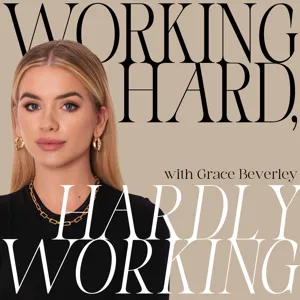The Sunday Story: The Unbearable Weight of Medical Debt

Learn more about sponsor message choices: podcastchoices.com/adchoices
NPR Privacy Policy
Explore "healthcare disparities" with insightful episodes like "The Sunday Story: The Unbearable Weight of Medical Debt", "The Black Maternal Mortality Crisis and Why It Remains an Issue", "Danny In The Valley: How AI could change medicine forever", "Ep.38 All The Things They Never Told Us About Female Bodies With Dr Hazel Wallace" and "Video Evidence Proves The Censors Are Full Of It (Ep 1700)" from podcasts like ""Up First", "Consider This from NPR", "Stories of our times", "Working Hard, Hardly Working" and "The Dan Bongino Show"" and more!



We’re away for the bank holiday, but in the meantime we thought we'd introduce you to another fascinating podcast from the Times stable.
The Sunday Times' West Coast correspondent, Danny Fortson, presents Danny in the Valley – conversations with the people trying to change the world through technology, and make loads of money doing it. This week: how AI could completely change medicine.
This podcast was brought to you thanks to the support of readers of The Times and The Sunday Times. Subscribe today: thetimes.co.uk/storiesofourtimes.
Host: Danny Fortson, West Coast correspondent, The Sunday Times.
Guest: Vijay Pande, head of Andreessen Horowitz’s $1.5bn bio fund.
Hosted on Acast. See acast.com/privacy for more information.

Dr Hazel Wallace is doing it all, from a trained medical doctor to Founder of the blog ‘The Food Medic’ a registered nutritionist, and also a best-selling author of recipe books, she’s made it her mission to research how your diet can help women live happy and healthy lives. The Food Medic is dedicated to the science of eating, she asks the questions we all need answering from what we should and should not be eating, to how eating can improve fertility and wellbeing to debunking eating myths. Her easy to follow help and advice has made her a trusted health and fitness expert.
- an introduction to Dr Hazel Wallace
- Hazel’s experience writing a book
- the lack of women in clinical trials
- the difference between sex and gender
- why should women listen to this?
- what women can do to advocate for themselves
- when should we be taking vitamins and minerals?
- key information on the menstrual cycle
- what vitamins and minerals should we be taking?
- how should we be tracking our cycle?
- why are women more likely to experience stress related conditions?
- how sleep is related to your health
- how much sleep should we get a night?
Hosted on Acast. See acast.com/privacy for more information.


Hosted on Acast. See acast.com/privacy for more information.

Stay up to date
For any inquiries, please email us at hello@podcastworld.io